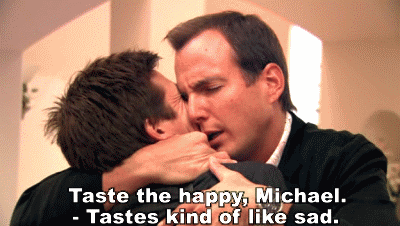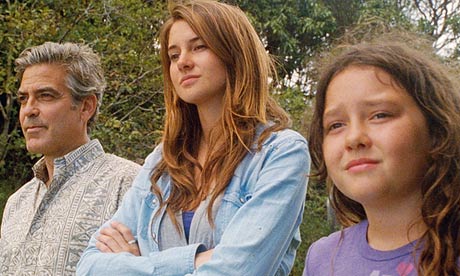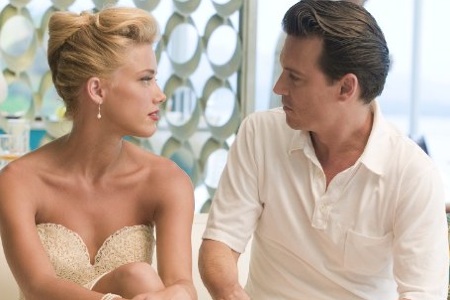 Even this late in his career, Martin Scorsese can still reinvent himself, even if it means not changing at all.
Even this late in his career, Martin Scorsese can still reinvent himself, even if it means not changing at all.





 Even this late in his career, Martin Scorsese can still reinvent himself, even if it means not changing at all.
Even this late in his career, Martin Scorsese can still reinvent himself, even if it means not changing at all.




 It’s a testament to the enduring legacy of The Muppets that their latest film, aptly titled “The Muppets,”can open with Paul Simon’s “Me and Julio Down by the Schoolyard,” and make most of the audience giddy. Before the movie began, there was a trailer for the latest “Alvin and the Chipmunks” movie which involved the chipmunks singing and dancing to Lady Gaga’s “Bad Romance.” It’s things like these that make me thankful that The Muppets are back.
It’s a testament to the enduring legacy of The Muppets that their latest film, aptly titled “The Muppets,”can open with Paul Simon’s “Me and Julio Down by the Schoolyard,” and make most of the audience giddy. Before the movie began, there was a trailer for the latest “Alvin and the Chipmunks” movie which involved the chipmunks singing and dancing to Lady Gaga’s “Bad Romance.” It’s things like these that make me thankful that The Muppets are back.
Arrested Development Marathon (IFC)

 Does every sports movie have to end with a victory in order to inspire us? If “Moneyball” teaches us anything, it’s that a failure is just one small step on the road to success.
Does every sports movie have to end with a victory in order to inspire us? If “Moneyball” teaches us anything, it’s that a failure is just one small step on the road to success.



 It’s almost 5 o’clock on some weekday and Warren Schmidt (Jack Nicholson) is on his last day of work before retirement. He’s not so much paying attention to the paperwork on his desk, but rather for the very second that the clock strikes 5 PM and he’s a free man. Then again, this was probably what every single day of work was like for him.
It’s almost 5 o’clock on some weekday and Warren Schmidt (Jack Nicholson) is on his last day of work before retirement. He’s not so much paying attention to the paperwork on his desk, but rather for the very second that the clock strikes 5 PM and he’s a free man. Then again, this was probably what every single day of work was like for him.




Before Hunter S. Thompson wreaked havoc at every hotel in Las Vegas in between mescaline trips, he downed shots of rum and turned over hotel mini bars in San Juan.
The novel of “The Rum Diary,” written by Thompson in the late 1950s but not published until 1998, remains one of the defining works of the father of Gonzo Journalism. The film adaptation of “Fear and Loathing,” while a failure upon initial release, is a cult classic. The film adaptation of “The Rum Diary,” written and directed by Bruce Robinson, may have trouble reaching this legendary status. “The Rum Diary” is a nice tribute to the brilliant rebel author, but it fails to capture the obsessive, detailed beauty of his writing.
Johnny Depp once again plays the role of Thompson, this time under the pseudonym of Paul Kemp. Kemp, an alcoholic American expatriate from New York, flees to Puerto Rico where he finds a job as a writer for a failing newspaper.
“The Rum Diary” is, in a sense, the story of how Thompson became a great journalist. At the beginning, he can’t find his voice as a writer. By the end, he realizes he must use his voice to fight against the injustices he finds. The movie only gets halfway into fully developing this point. If you want to see a truly great portrayal of the impact of Thompson’s writing, watch “Gonzo” instead.
Another part of the movie involves Kemp’s encounter with Sanderson (Aaron Echkhart), a rich American businessman living in Puerto Rico with his beautiful lover Chenault (Amber Heard), the continual source of Kemp’s affection. Sanderson’s plan to develop a resort on beachfront property feels less like a fully developed representation of Thompson’s first battle against the “bastards” of capitalism, and more like the plot of an 80s comedy.

Since stumbling upon the original manuscript of “The Rum Diary,” Depp has always been fascinated with Thompson, and turning this book into a movie has always been a passion project for him. In his performance, Depp captures the essence of Thompson through his mumbled voice, which is always moving faster than anyone can speak, and despite almost always being drunk or under the influence of a strange drug introduced to him, his always cognizant demeanor.
Meanwhile, Giovanni Ribisi steals every scene he’s in as as the disgruntled and out-of-his-mind Moburg. His lightning-fast intensity and hilarious characterization should earn him better roles in the future. As Lotternman, Richard Jenkins’s fiery way of speaking deserved more screen time. Sanderson’s intended cartoonish persona and two-dimensional nature makes it difficult for Eckhart to do much with the character. While Heard has the entrancing look of Chenault, her performance comes off as more dull than enticing.
While “The Rum Diary” is about Thompson’s quest to find his voice, the film lacks that voice completely and ends up being a squeaky-clean, Hollywood version of “The Rum Diary.” While the film is entertaining, it lacks both Thompson’s insight and indignation. The greatest absence from the film is of the novel’s haunting final lines, which embody Thompson’s early quest to be F. Scott Fitzgerald in his writing style. These words could have been said in a final voiceover, or perhaps represented by one image. Instead, it resorts to a tidy epilogue, as opposed to exploring the more indefinite freedom of the original story.
And in this lays the movie’s biggest problem: capturing the mood and feeling. Thompson’s style of journalism is driven by individual feelings rather than objectivity. In “Fear and Loathing,” the bright lights and ringing slot machines of Vegas are just a cover for the emptiness of the American Dream. In “The Rum Diary,” tropical paradise is nothing but a false romanticism to conceal the pervasive lies of those in power. The film makes Puerto Rico look exciting and pretty, but it never connects the dots.
When “Fear and Loathing” replicated the book’s famed “wave speech” on screen, it did exactly what Thompson intended: it stripped away the layers of beast and made himself look totally human, just for a moment, while simultaneously justifying a countercultural generation. There is a scene in this film similar in message, and only slightly as successful in adaptation. I don’t mean to continually compare these two stories, as they were written at two very different times in Thompson’s life, but when you strip away the layers of “The Rum Diary” that Depp and Robinson attempt to recreate, there is nothing but a hollow center.